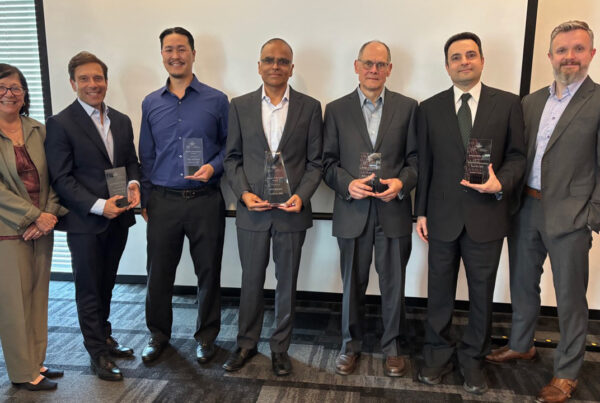Many businesses won’t even consider manufacturing in the United States or Canada, because the perceived benefits of outsourcing manufacturing overseas outweigh the perceived pitfalls.
Fortunately, this is a common misconception, and businesses like AirBoss of America succeed by manufacturing locally, regionally, and nationally.
Successfully manufacturing goods in the U.S. and Canada is as much about corporate responsibility practices as it is financial performance.
That’s why smart business leaders understand the importance of environmental, social, and corporate governance. It’s in your best interest to apply ESG best practices to your business goals and strategies if you want to manufacture locally and succeed.
Measuring Success in a Modern Manufacturing Market
Key performance indicators (KPIs) are still the benchmarks by which businesses measure efficiency of processes and overall company success. At AirBoss, we measure success based on everything from sales to product innovation and rubber-compounding expertise.
“First and foremost, we are relatively large employers in all the communities that we serve,” says AirBoss President and COO Chris Bitsakakis, “We take great pride and responsibility in keeping [our factories] running and growing.”
As universal as common manufacturing KPIs are, it’s crucial you establish and monitor your own subjective metrics. What signifies success for one company may not matter as much for another.
Here are seven common key performance indicators modern manufacturers use to measure local success:
- Financial performance
- Manufacturing efficiency
- Product and supplier quality
- Safety
- Inventory management
- Customer satisfaction
- Corporate social responsibility (CSR)
These manufacturing success KPIs are the tip of an ever-growing iceberg. Social responsibility tied to economic impacts will continue to define success in a modern manufacturing world. That’s why it’s so important to focus on environmental, social, and corporate governance practices.
Investors and Consumers Like Socially Responsible Companies
It’s the last metric mentioned above—corporate social responsibility—that’s attracting modern-day investors. It’s also what drives manufacturers in the United States and Canada to contribute more than just a salary to local employees and communities they support.
“Above and beyond [employment],” says Bitsakakis, “We also interact with a variety of charities that live and work in the communities that we are in.”
Why do investors like socially responsible companies? According to Aflac’s annual corporate social responsibility study, 73% of investors and 77% of consumers are more likely to invest or purchase a product from a company that demonstrates a commitment to addressing social, economic, and environmental issues.
The Importance of Environmental, Social, and Corporate Governance (ESG)
With corporate social responsibility comes environmental, social, and corporate governance (ESG). ESG aims to inform investors and align company goals and strategies, which is why compliance with ESG standards is so important for modern manufacturers.
In fact, according to a study conducted by research firm Opimas, ESG-data driven assets were worth more than $40 trillion in 2020.
Companies like AirBoss not only thrive but also make positive impacts through environmental initiatives, community building, and celebrating the diversity of their workforce and communities.
“Every time you build a plant, it’s not just the plant that you’re building,” says AirBoss Executive Vice President and General Counsel Chris Figel. “It’s all of the industries around that plant that support that plant. You have maintenance. You have machinery. You have subcontractors.”
AirBoss Achieves Local Manufacturing and International Success
At AirBoss, we believe in supporting both the local and global economy in ways that reach beyond financial impacts—from providing learning and professional growth opportunities to directly improving quality of living through positive corporate culture and proactive community initiatives.
As a result, AirBoss of America and its subsidiaries continue to succeed in a crowded marketplace. We do so by balancing traditional success metrics like financial performance and product quality with more modern metrics like corporate social responsibility and environmental impact.
“I think from that perspective,” Figel continues. “We’re going to see a really big shift, hopefully, towards going back to our manufacturing roots and to actually producing things that we consume rather than consuming things from somewhere else.”










